Best Personal Trainer Certification: The Ultimate Guide
Are you considering a career as a personal trainer? Perhaps you are wondering which is the best personal trainer certification? This article attempts to clarify things for you.
The best programs receive accreditation from the National Commission for Certifying Agencies (NCCA). The NCCA requires certifying agencies meet a stringent set of standards. These standards prove their programs adhere to industry expectations. Most (but not all) other programs are best avoided. Many organizations are selling worthless “certifications” online for as little as $49.
Best NCCA-Accredited Personal Trainer Accreditation?
Below is a review of nine of the most credible certification programs in the country. This article’s focus does not highlight data for each program that applies to all nine certifications. For example, all have the prerequisite that a person must be 18 years old to become certified. All require recertification within 2-4 years. And all provide various levels of online study options and materials to prepare for the tests. Within each program, the cost of study packages depends on the options selected. Most programs require adult CPR/AED certification.
Instead, this article looks at each program’s strengths and weaknesses and examines for whom each may be “best.” A large part of which certification is best depends on the setting in which you want to work. You should also consider your budget and the type of people you are most interested in training. Do you wish to work in a large gym, hospital or be self-employed? Do you envision yourself working with the general population, most of whom will want to focus on weight loss? Would you prefer to work with seniors? and understand illnesses and limiting health issues which may need corrective and functional training? What about a strength and sports training focus for working with athletes?
ACSM: American College of Sports Medicine – www.acsm.org
T
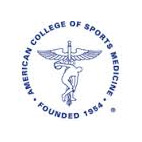 he largest exercise science and sports medicine organization in the world. ACSM sets the gold standard for personal training (PT) certification. This certification is ideal for individuals interested in working in clinical settings such as a hospital. The certification is also for those who plan to pursue a career in medicine or healthcare. Hospitals and wellness centers can ask for this type of accreditation.
he largest exercise science and sports medicine organization in the world. ACSM sets the gold standard for personal training (PT) certification. This certification is ideal for individuals interested in working in clinical settings such as a hospital. The certification is also for those who plan to pursue a career in medicine or healthcare. Hospitals and wellness centers can ask for this type of accreditation.
Rigorous and technical in nature, the exam is one of the most difficult in the industry to pass. The cost of taking the test is between $219 and $279, depending upon membership. Extra study materials can cost up to $800. Some requirements such as body fat testing with skin fold calipers are outdated and less relevant to those planning to work in gyms.
ACE: American Council of Exercise – www.acefitness.org
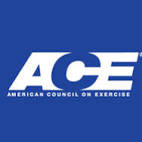 Perhaps the most widely accepted and well-known, ACE is considered to be one of the “easier” certifications to obtain. This certification provides a solid foundation of basic personal training fundamentals. ACE certification is best for individuals who are first entering the industry and plan to work with a wide variety of generally active clients. Price for this certification is moderate. The exam alone costs $399. Recommended study packages range from $499 to $699.
Perhaps the most widely accepted and well-known, ACE is considered to be one of the “easier” certifications to obtain. This certification provides a solid foundation of basic personal training fundamentals. ACE certification is best for individuals who are first entering the industry and plan to work with a wide variety of generally active clients. Price for this certification is moderate. The exam alone costs $399. Recommended study packages range from $499 to $699.
CI: Cooper Institute – www.cooperinstitute.org
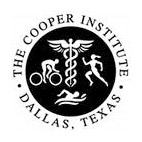
This certification differs from the others due to its emphasis on the importance of educating both children and adults. Methodologies focus on training to promote health benefits more than improving optimal athletic performance. Holistic in approach, this certification may be helpful for those interested in public health and holistic wellness centers. The exam costs $289. Study materials range from $599-$899.
NSCA: National Strength and Conditioning Association – nsca.com
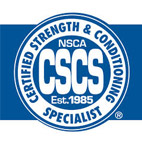 The NSCA Certification is a comprehensive, in-depth program. This certification prepares trainers to work with people of varying fitness levels. NSCA certification is geared more towards training healthier, active people. The exam, priced from $250-$435 (depending on the level of membership) is one of the most difficult to pass.
The NSCA Certification is a comprehensive, in-depth program. This certification prepares trainers to work with people of varying fitness levels. NSCA certification is geared more towards training healthier, active people. The exam, priced from $250-$435 (depending on the level of membership) is one of the most difficult to pass.
Like NASM, this certification is ideal for people interested in focusing on power training and peak performance. Many NSCA-certified personal trainers also obtain NSCA’s more advanced certification. CSCS–Certified Strength and Conditioning Specialist certification. The CSCS requires a four-year degree and is appropriate for those interested in training athletes.
NCSF: National Council on Strength and Fitness – www.ncsf.org
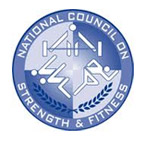 Reputable and widely accepted, NCSF offers one of the most affordable certification programs available. The exam costs only $249. Packages that involve home study and include a two-day interactive workshop both cost $535. Also, for people who learn best in the classroom, NSCF offers a 32-hour course. The course is available only to select college campuses and career institutes.
Reputable and widely accepted, NCSF offers one of the most affordable certification programs available. The exam costs only $249. Packages that involve home study and include a two-day interactive workshop both cost $535. Also, for people who learn best in the classroom, NSCF offers a 32-hour course. The course is available only to select college campuses and career institutes.
NCSF certification differs from the rest on this list in that it lacks adult CPR/AED certification as a requirement. However, many trainers will need to get CPR/AED certified because most gyms require this.
NASM: National Academy of Sports Medicine – www.nasm.org
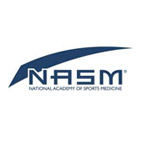 NASM is considered to be one of the best programs in the country, NASM certification may have the highest recognition in the industry. This program differs from others due to its emphasis on corrective training to address muscle imbalances. NASM provides more in-depth study of special needs populations such as pregnant women, the elderly and more. The exam is one of the hardest to pass. Exam and study packages range from $699 to $999.
NASM is considered to be one of the best programs in the country, NASM certification may have the highest recognition in the industry. This program differs from others due to its emphasis on corrective training to address muscle imbalances. NASM provides more in-depth study of special needs populations such as pregnant women, the elderly and more. The exam is one of the hardest to pass. Exam and study packages range from $699 to $999.
NESTA: National Exercise and Sports Trainers Association – www.nestacertified.com
The NESTA program is unique due to its emphasis on technology to track training results. Trainers use a heart monitor, for example, to obtain data to test and chart the progress of a client in a tangible way. A newer NCCA-approved certifying agency (since 1992), NESTA lacks some of the recognition by gyms that NASM and ACE have.
Considered to be a bit less rigorous than NASM or ASCM, NESTA has one of the “easier” tests to pass. The cost of a study package with proctored exam voucher is just $449, making this a more affordable option. A drawback is that the exam must taken within 90 days of purchase. Unlike most other programs, recertification occurs after four years instead of two.
NFPT: National Federation of Personal Trainers – www.nfpt.com
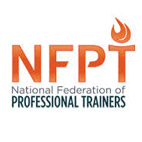 The NFPT program is one of the most affordable options on this list. The test costs $263. The premier self-study package runs at $455 which is less expensive than many other programs. This option is best for those considering entry-level certification.
The NFPT program is one of the most affordable options on this list. The test costs $263. The premier self-study package runs at $455 which is less expensive than many other programs. This option is best for those considering entry-level certification.
Frequently asked Personal Trainer Certification Questions

Is Choosing an Accredited Certification Program Necessary
Questions about the benefits of accreditation prompted our curiosity on this issue. So, to find out the answer to this somewhat ambiguous question, we decided to go right to the source. We called the folks at The National Commission for Certifying Agencies (NCCA); the results might surprise you.
If you’re comparing accreditation at educational institutions to the personal trainer certification process, don’t. Accreditation of educational institutions carries benefits entirely different from the personal trainer programs. The biggest difference is transferring units. Here’s a summary of what the representative at NCCA said. As a third party accreditation agency, we make sure that our programs adhere to the best standards and practices for the industry. Our accreditation isn’t on par with educational accreditation. Because of this units aren’t transferred to another school or college.
“What does this mean for you? It means that within the personal trainer industry, accredited certification programs carry some weight. Employers may favor applicants that gained their certification from an accredited program. As far as transferring credits, the NCCA accreditation is not recognized, which is an important distinction to students that have aspirations to go beyond a personal trainer position. Positions in exercise science and physical education require a bachelor’s degree. The differences shouldn’t diminish the effort these certification organizations put forth to gain accreditation.
The value you place on getting certified is the same value these organizations will put on getting accredited.
Who is the DETC?
DETC stands for Distance Education and Training Council. DETC is an accrediting agency nationally recognized by the U.S. Department of Education, the Council for Higher Education (CHEA), and the International Health, Racquet and Sportsclub Association (IHRSA). The personal trainer certification agency, International Sports Sciences Association (ISSA), is the only organization we found at this time that has this accreditation. As a result, ISSA courses can be transferred for college credits. ISSA courses are also listed with DANTES, and their programs are fully approved for military tuition assistance. One other interesting fact that has no bearing on the subject is that ISSA now has the extension EDU after their URL instead of ORG.
What Are The Best Personal Trainer Certification Programs?
This is probably the most asked question among potential personal trainers. The reason, no one knows the answer. And then to complicate the matter, it depends on what was popular with the fitness center or the employer at the time. You must remember that competition among fitness centers is quite fierce, and marketing plays a big part in their certification requirements for potential fitness trainers. Having said that, here are five organizations that surfaced most often in forums as being the best:
- NASM – offers self-study, online materials. The NASM certification is widely known and accepted at most fitness centers.
- ISSA – is recognized internationally. Accredited by DETC, ISSA offers several different training classes. ISSA Certification is acceptable in a variety of fitness industries.
- AFFA – offers distance education/online studies. A primary focus is on personal training and group exercise, which is perfect for fitness centers and individual instruction.
- ACE – offers a broad range of certifications, including for the personal trainer. Home-study/online learning fits students schedule. ACE certification has widely accepted at most health clubs and fitness centers.
- NSCA – focus is on strength and conditioning. Has affiliations internationally, offers career services, well respected in the industry.
The next logical question is, why are they the best? Why isn’t ACSM, a well known, widely acclaimed sports medicine certification agency on the list?
Many people who have taken and passed the ACSM personal trainer certification test speak highly of it. To answer these questions, we will have to look at the differences and similarities in the various certifications.
Certification Reviews
Employment is a significant factor in determining the type of certification one seeks. As mentioned, most employers look favorably on organizations that are NCCA accredited. So, we first want to look at groups that are NCCA accredited and accepted at most gyms and fitness clubs. Four organizations fit these criteria, they are:
- ACE
- NASM
- ACSM
- NFPT
Now, there was some discussion about what certification would be more adaptable to working with seniors, and the votes went to NASM. There’s also a Certified Strength and Conditioning Specialist Certification (CSCS) for personal trainers who wish to train professional athletes.
How specific can a personal trainer get? Did you know you can get certified by ACSM as a cancer exercise trainer? There are many specialty areas personal trainers can branch off into, but the four above mentioned organizations top the list for basic personal trainer certification.
Best Online Personal Trainer Certification Programs
Technology and the Internet have opened more doors for online learning, also known as distance education. Some people may still prefer the traditional classroom setting compared to online learning. But more and more are finding that online educational courses offer more flexibility than traditional opportunities. Then there are those situations where there are no local classes, which leaves the student with only one choice – online learning. Reputation means everything when you’re looking for an online certification program. Employers only care that you pass the exam they require for employment in their business, but you need to consider the support you are going to receive and the cost of the education. Here’s an example: Penn Foster is a vocational school offering a personal trainer certification course for the NCSF certification. It will set you back close to $1000 for the course, which includes exam fees. Compare this to getting the same materials from NCSF for $299, plus $199 for the exam fee; this is a saving of $500. Penn Foster does have online resources students have access to, whereas NCSF is a home study course, but the material is the same.As far as online personal trainer certification programs go, most major organizations offer online or home study learning. The two that keep getting the most thumbs up are ACE and ISSA. ACE has three programs ranging from $599 to $799. They all come with exam vouchers. The Two most expensive programs come with video lecture series, two practice tests, and exam vouchers. The most expensive program includes a retest voucher.Remember, when we’re scouring the marketplace looking for the “best of,” we’re looking for certification programs with good reputations and ones that prepare future personal trainers for a broad range of job opportunities.
Still Struggling With Which Certification is Best?
We’ve presented a lot of information to you, and you’re not alone if you still are in a quandary about which certification is the best. If you look at forums and other venues where they entertain conversations about certification organizations, you’ll find pros and cons for just about all the major groups. If you take ACE as an example, you find students stating that even though the exam is relatively easy, the material is comprehensive enough to be useful in their daily training. ISSA is another case of being seen between the two views. Some say the open book, online test lends itself to cheating, and this lowers the standard for quality trainers. On the other hand, there are popular fitness centers like Golds Gym , World Gym , Lifetime Fitness , and many more that accept ISSA certified trainers. There’s also a list of well-known trainers who hold ISSA certifications, such as Andrew Penner (Pittsburgh Penguins), John Schaffer (coach Apollo Ohno), Lee Haney (Former Mr. Olympia), and Lou Ferrigno (Bodybuilder), to name a few.
Narrowing Your Choices – the only way you will find the best certification program for you is by asking yourself some questions. Below are a few questions to start with:
- Where do I want to work? E.g., health club, gym, school.
- Do I want a career or a job?
- Location, what state/city will I be working?
- Do I want to work with special needs clients, E.g., seniors, those with a disability.
- Do I need classroom training or distance education?
Answering these questions will help you focus in on your goals, and in turn, find the best certification program to achieve this objective.
The location where you will seek employment can play a significant role in what certification you need. As strange as it may seem, in some parts of the country one certification will take precedent over another. As mentioned earlier, a lot of this competition among certification organizations has to do with marketing.
Talking With Local Employers – if you want to narrow things down, speak with the folks that are responsible for hiring. Especially the ones that you might wish to work for in the future.
From all the research we’ve done, getting certified as a personal trainer is only half the battle. For those who are getting their personal trainer certifications for the fitness industry, your expertise in creating a fitness program for individuals and groups extends well past what you learned in books.Personal training is a people business. The economy, competition, personalities, and, of course, results, are contributing factors in the fitness business. All the articles we’ve read from professional personal trainers comes down to one thing – they love to help people. With this core passion, becoming a personal trainer and getting certified is the first step to a rewarding career. And it doesn’t stop there. There are so many areas trainers can go in, your career options are unlimited. Many who started as personal trainers found themselves getting certified in sports medicine, senior fitness, health services, and many other areas of the fitness/health industry. There’s one other thing we haven’t talked much about…costs. Unlike some other industries, where their programs can cost upwards of $10,000, and you’re stuck with one certification, you can achieve several different trainer certifications with each one costing under $1000. One article we came across said it best, “if you do what you love, then you will love what you do.” Find the best personal certification program for you, and then go out and do what you love.
The best personal trainer certification will be ultimately up to you, but we hope the information above helps you understand the differences and pros and cons of each accreditation agency.


